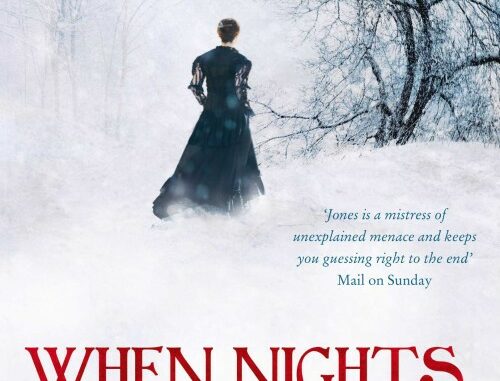
Set at the turn of the twentieth century, When Nights Were Cold tells the startling story of Grace Farringdon and her interest in mountaineering. Grace grows up in a family home where dreams are stifled and her parents’ primary goal for her and her sister is to find a good husband. However, from the beginning Grace is a physically active, determined young girl, with an interest in mountain expeditions, and a thirst to learn. She soon defies her parents and goes to one of the first female colleges to study science. While there, she meets Leonora Locke, Cicely Parr and Winifred Hooper, and they form an Antarctic Exploration Society. Beginning with climbs in North Wales, the four of them cannot know the disaster that lies ahead…
This is a well-told, engrossing book that I tore through in a couple of days. The story is told retrospectively by an ageing Grace, as she shuts herself away in the old family home. We therefore realise from the outset that something has happened to lead to this new reclusive life, but Jones effectively keeps us hanging on right up until a few pages before the end of the book.
I enjoyed the historical setting for the story (I tend to like historical fiction). It was interesting to get a sense of the atmosphere among educated young women of that time, some of whom were ardent supporters of women’s suffrage. Jones does not overdo this though, and I like that it is a historical backdrop for something of a mystery story.
Jones has been described as someone who merges crime and literary fiction. This book is something of a departure from her previous novels, being the first set in a very specific historical period. However, we still have those moments of poetic writing, most commonly found in this book in the description of the Alpine landscape, with its awe inspiring mountains and all encompassing cold.
I think the strength of Jones’ storytelling is in her ability to establish and maintain this atmosphere of mystery, and to gradually lead her readers to doubt Grace as a narrator.

Leave a Reply